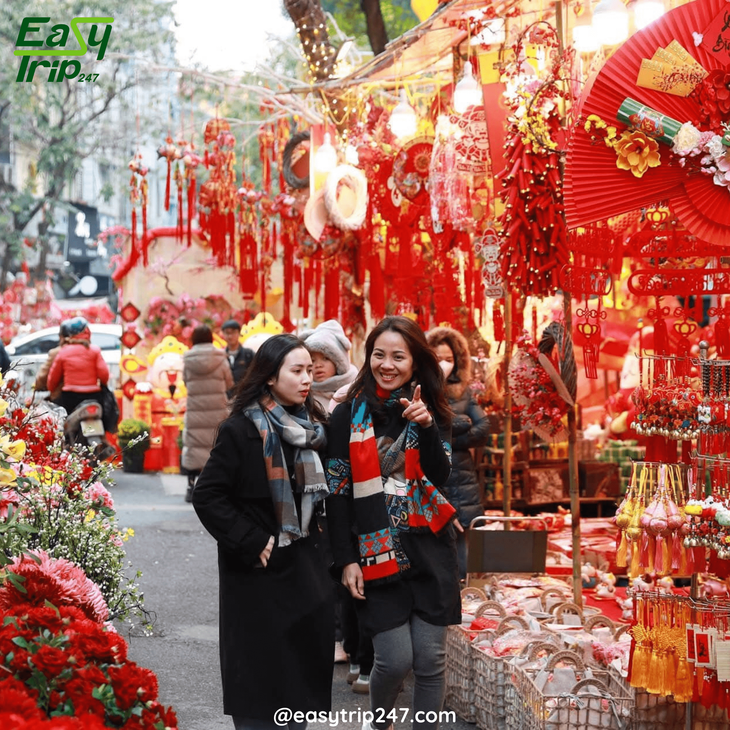What Are the Cultural Customs I Should Be Aware of in Vietnam?
On
23/06/2025Reading time:
1 min
Summary:
Vietnam, a country with a rich tapestry of history, culture, and traditions, offers an extraordinary experience for those who visit. As you plan your travels to this beautiful destination, it’s essential to understand the cultural customs that play a pivotal role in the daily lives of the Vietnamese people.

Vietnam is known for its deep-rooted Confucian values, which emphasize respect for elders, family, and harmony within the community. These values are evident in every aspect of Vietnamese life, from the way people greet each other to how they eat, interact, and celebrate important festivals. Understanding the ideal time to visit Vietnam for cultural experiences can help you witness traditional events and customs that showcase the essence of this fascinating country. Whether you are in the bustling cities of Hanoi and Ho Chi Minh City, or the serene countryside of Sapa, you’ll encounter unique customs that reflect the heart of Vietnamese society.
Greetings and Etiquette in Vietnam
One of the most important cultural customs to be aware of when visiting Vietnam is the way locals greet each other. The Vietnamese tend to be very polite and formal, especially when meeting someone for the first time. A common greeting is a simple "Xin chào," which means "Hello" in Vietnamese. However, when greeting elders or people of higher status, it’s customary to show respect by using formal language or addressing them with titles like “ông” (Mr.) or “bà” (Mrs.). A slight bow of the head or placing the hands together in a prayer-like gesture may also be used in certain regions, especially when showing deep respect.
Understanding the ideal time to visit Vietnam also includes being aware of the cultural significance of certain greetings and interactions during specific festivals. For example, during the Lunar New Year (Tết), greetings like “Chúc Mừng Năm Mới” (Happy New Year) are exchanged, and people visit relatives and friends to wish them prosperity and good health in the coming year. If you're lucky enough to be in Vietnam during Tết, it’s an excellent opportunity to witness the country’s rich cultural customs, including family gatherings, traditional food offerings, and vibrant festivals.
Respect for Elders and Family Values
In Vietnam, the family unit is central to society, and respect for elders is one of the most important cultural norms. Children are taught to honor their parents, grandparents, and other older relatives, and this respect is deeply ingrained in Vietnamese culture. As a visitor, it’s important to recognize this value and be mindful of your behavior when interacting with older people. When greeting an elderly person, a slight bow of the head or using polite titles is always appreciated.
The ideal time to visit Vietnam for cultural immersion could be during family gatherings, such as Tết, where the importance of family bonds is on full display. During these times, you may be invited into local homes to share a meal or enjoy the festivities. It’s considered a great honor to be included in these family-oriented events, so make sure to show respect and gratitude.
Table Manners and Eating Customs
When dining in Vietnam, you’ll notice that there are several customs and table manners that reflect the country’s cultural values. One of the most significant aspects is that food is often served family-style, with a variety of dishes placed in the center of the table for everyone to share. This communal way of eating fosters a sense of togetherness and is an essential part of Vietnamese culture. If you’re invited to a local home for a meal, it’s important to wait for the host to invite you to start eating before picking up your chopsticks.
It’s also customary to wait for the eldest person at the table to begin eating before you start. This reflects the respect for elders that is so central to Vietnamese culture. When using chopsticks, avoid sticking them upright into a bowl of rice, as this is considered disrespectful and evokes funeral rituals. Always place your chopsticks neatly on the rest when not in use.
The ideal time to visit Vietnam to explore local culinary customs would be during food festivals, such as the annual "Hanoi Food Festival" or "Da Nang International Food Festival," where you can sample authentic Vietnamese dishes while observing the food-related traditions of the country. In Vietnam, meals are a time for family bonding, and there is an emphasis on hospitality, so be sure to enjoy the experience fully and show appreciation for the food offered.
Dress Code and Public Behavior
While Vietnam is a relatively modern country, its cultural customs still dictate certain norms regarding dress and public behavior. Modesty is highly valued, especially in more rural or traditional areas. When visiting religious sites such as temples, pagodas, or churches, it’s important to dress conservatively. This means covering your shoulders and legs. Wearing comfortable clothing for sightseeing is fine, but when entering religious spaces, always ensure that your attire is respectful.
In public, it’s also customary to maintain a calm and composed demeanor. Public displays of anger or frustration are frowned upon, as maintaining harmony and avoiding confrontation are central to Vietnamese society. If you’re wondering about the ideal time to visit Vietnam for cultural celebrations that may involve specific dress codes, Tết (Lunar New Year) is an excellent time to experience the country's vibrant fashion culture, where traditional attire like the “áo dài” is worn during festive occasions.
Gift-Giving Customs
Gift-giving is an essential part of Vietnamese culture, particularly when visiting someone’s home or celebrating special occasions. If you’re invited to a local’s house, bringing a small gift as a token of appreciation is a kind gesture. Popular gifts include fruit, tea, or specialty foods. However, be aware that certain items are considered inauspicious, such as clocks, handkerchiefs, or anything that represents death. When offering the gift, it’s polite to present it with both hands and avoid immediately opening it in front of the giver, as this is seen as impolite.
The ideal time to visit Vietnam to experience gift-giving customs might be during Tết, when it is common for people to exchange gifts with loved ones as a symbol of good fortune and well-wishing for the New Year. You may be lucky enough to receive gifts as part of the festive spirit, and learning how to graciously accept them is an important part of cultural etiquette.
Festivals and Celebrations
Vietnamese festivals are a fantastic way to experience the country’s customs and cultural richness. The ideal time to visit Vietnam to witness these celebrations would be during major events such as Tết (Lunar New Year), Mid-Autumn Festival, and the Hung Kings Festival. Tết is the most important holiday in Vietnam, marked by vibrant parades, dragon dances, and family reunions. This is the time when Vietnamese people honor their ancestors and celebrate new beginnings. It’s an exciting time for visitors to immerse themselves in local traditions, taste festive foods, and take part in community activities.
During these festivals, you’ll notice that traditional customs such as ancestor worship, family gatherings, and rituals are central to the celebrations. By visiting during these times, you not only get to experience the ideal time to visit Vietnam in terms of weather, but you also gain deeper insight into the country’s cultural values and traditions.
Conclusion
Vietnam’s cultural customs are deeply rooted in respect, harmony, and community. From the importance of greeting others with respect to understanding table manners and dress codes, these customs play a vital role in daily life. Knowing these cultural nuances is essential for anyone visiting the country, as it helps create a more meaningful and respectful travel experience.
As you plan your visit, the ideal time to visit Vietnam for cultural immersion depends on the experiences you want to have. Whether it's partaking in traditional festivals like Tết, sharing meals with local families, or simply learning about the intricate rituals that shape daily life, being mindful of these customs will not only enrich your travels but also deepen your understanding of this beautiful country. By respecting and embracing the cultural traditions of Vietnam, you’ll leave with unforgettable memories and a greater appreciation for its rich heritage.
Design Your Tour Today And Get A Quote. Contact Us Here: +84.975.504.825
Source: Easytrip247 Team compiled.
